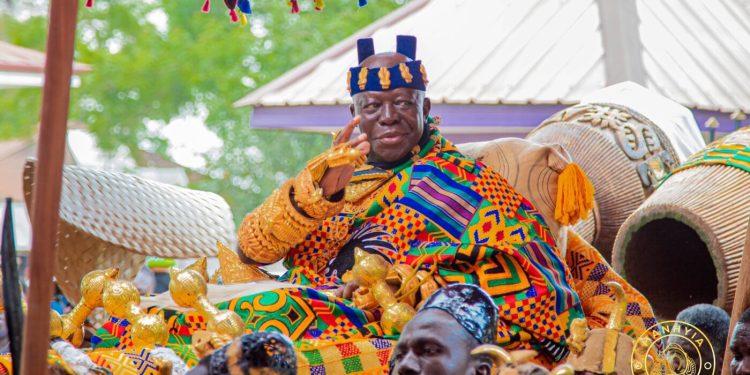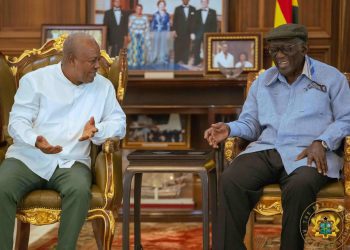The Asantehene, Otumfuo Osei Tutu II, has set Sunday, November 30, and Monday, December 1, 2025, for what is expected to be the concluding phase of his mediation in the long-standing Bawku chieftaincy dispute.
A statement issued by the Manhyia Palace on Monday, November 10, described the two-day session as a critical step in the Asantehene’s ongoing efforts to broker lasting peace between the feuding Kusasi and Mamprusi factions.
His Majesty commended both sides for their cooperation in previous engagements and urged stakeholders to continue upholding peace as the dialogue reaches its final stage.
“His Majesty praises both sides for their positive approach to the mediation so far and appeals to all concerned to avoid any actions likely to affect the progress towards a lasting solution to the Bawku conflict,” the statement read.
The Asantehene first became involved in the mediation process in April this year, meeting representatives from both factions in Bawku between April 28 and April 30 to open a new chapter of dialogue.
The talks, temporarily suspended, resumed on May 13, during which the Asantehene noted that the discussions had brought a period of relative calm to the area.
The Bawku municipality has, in recent months, experienced recurring violence and heightened tensions, with sporadic attacks resulting in loss of lives and the imposition of curfews by authorities to curb unrest.
The situation has disrupted livelihoods, strained community relations, and drawn national attention to the urgent need for a lasting peace settlement.
By announcing the final mediation dates, the Asantehene signals renewed determination to help both sides reach a consensus and restore stability to the conflict-affected enclave.
His leadership has been widely praised by traditional authorities, government officials, and peace advocates as a symbol of unity and wisdom in addressing one of Ghana’s most enduring disputes.
Long-standing chieftaincy rift
The Bawku conflict, rooted in disputes between the Kusasi and Mamprusi ethnic groups over the rightful occupant of the Bawku skin, has erupted intermittently since the 1950s.
While the Kusasi regard the Bawku skin as historically theirs—backed by government recognition of the Bawku Naba, or paramount chief—the Mamprusi have long challenged this status, citing precolonial links and questioning the legitimacy of Kusasi rulership.
The rivalry has led to multiple outbreaks of violence, particularly since the early 2000s.
Several peace accords, including state-led interventions and national security deployments, have failed to yield lasting peace. In recent years, violent clashes have claimed lives, displaced residents, and left a heavy security presence in the area.
Curfews, bans on motorbike use, and sporadic military patrols have become regular features of life in Bawku, but they have done little to resolve the underlying grievances.











